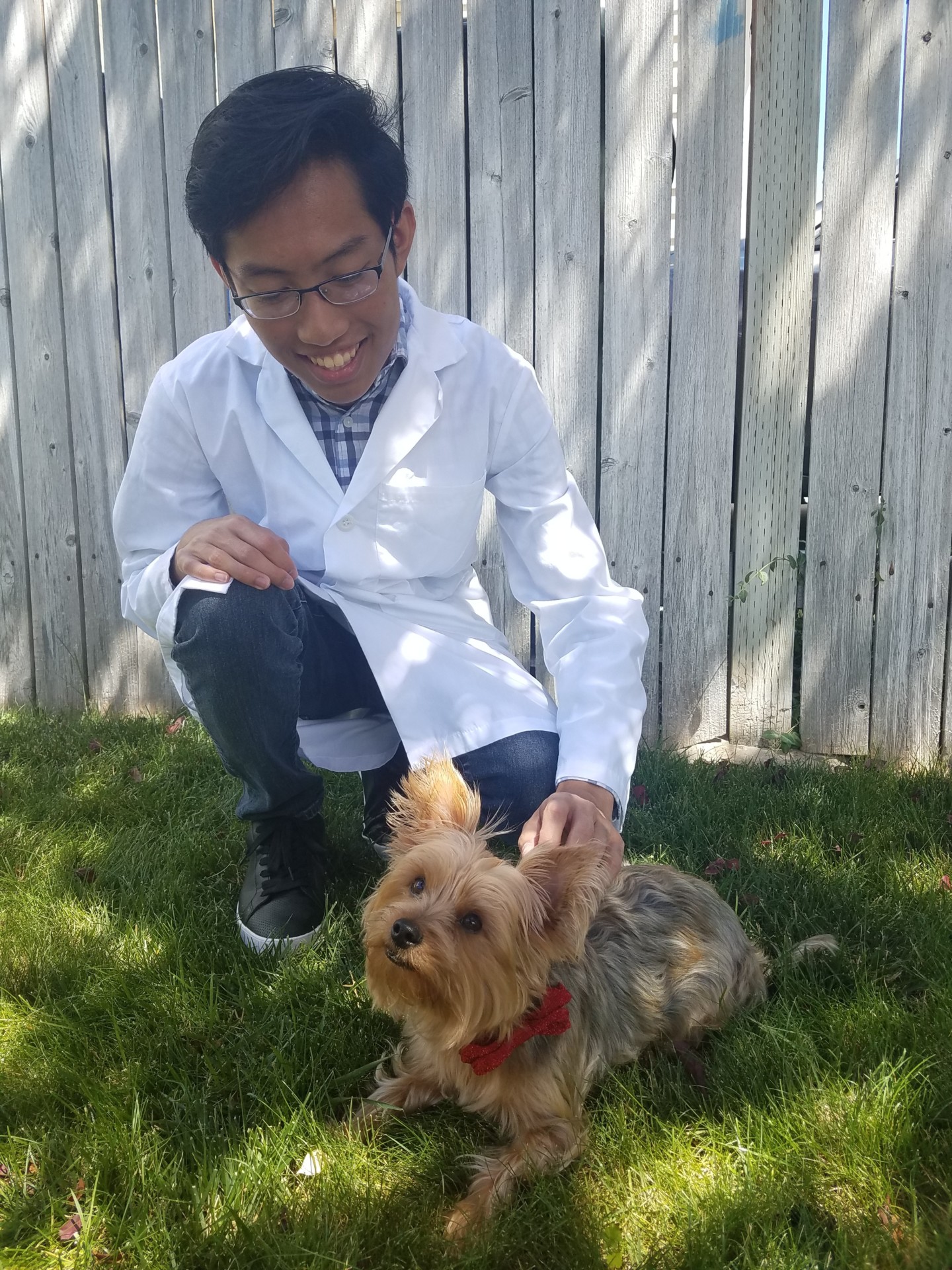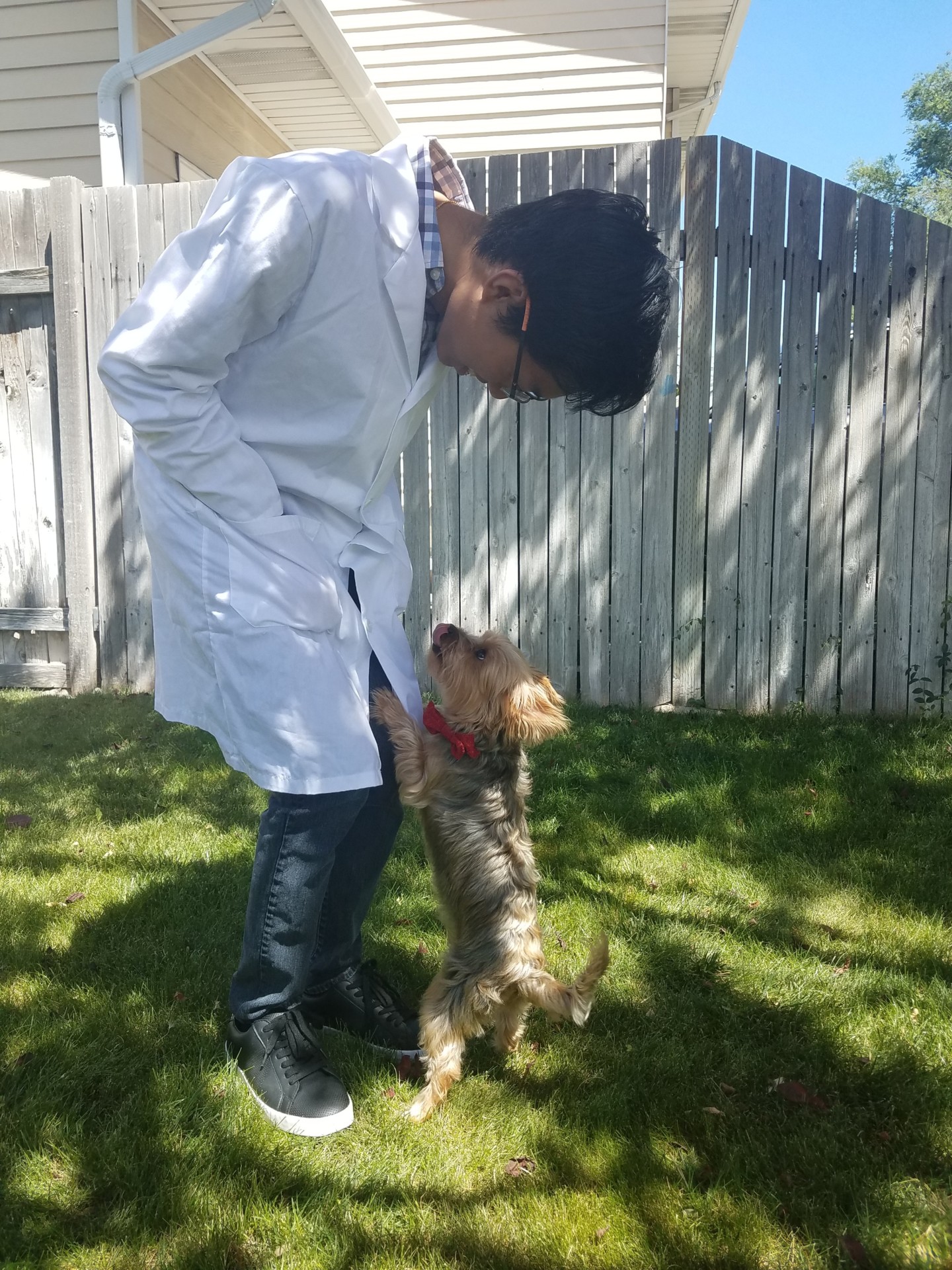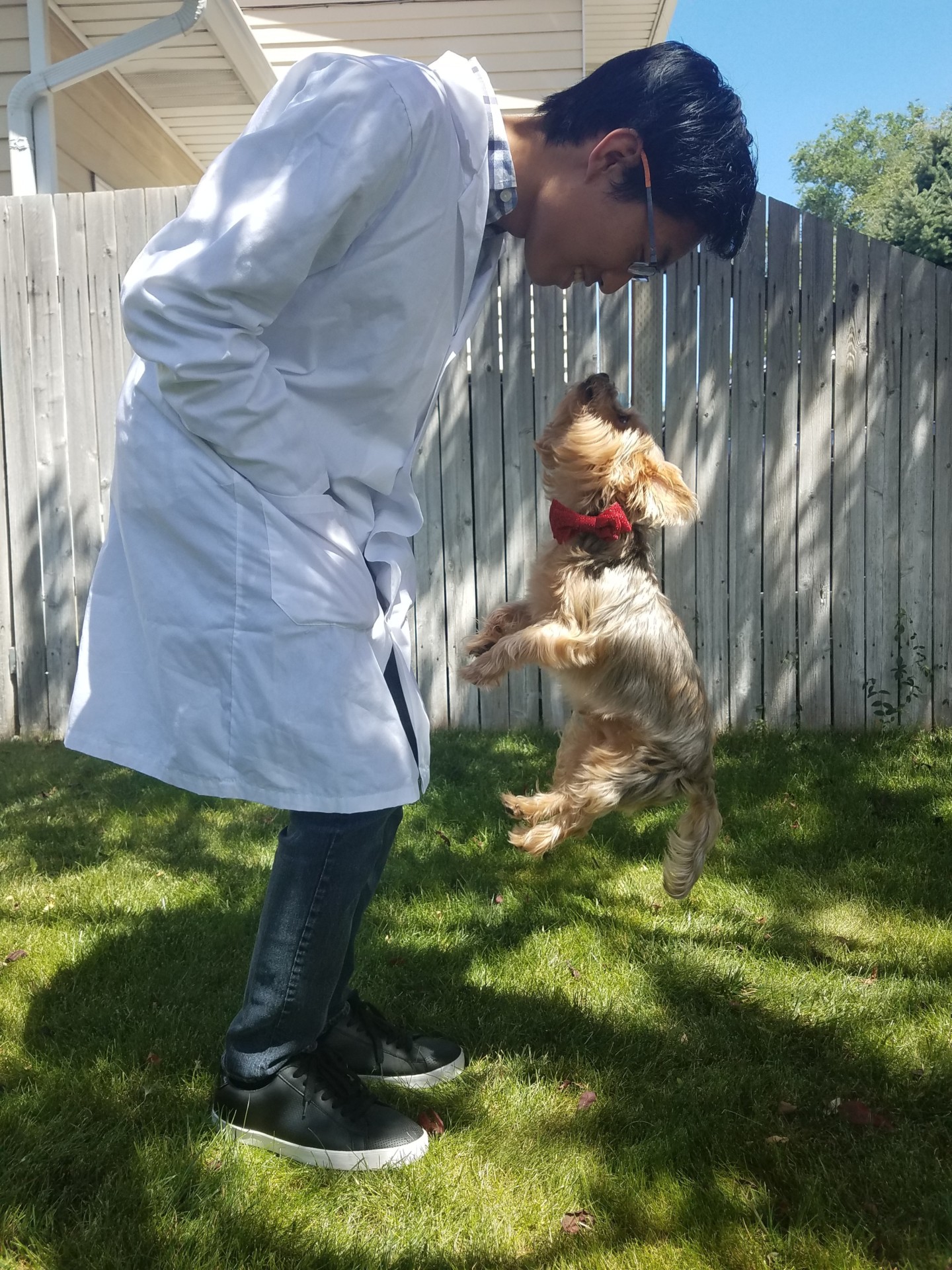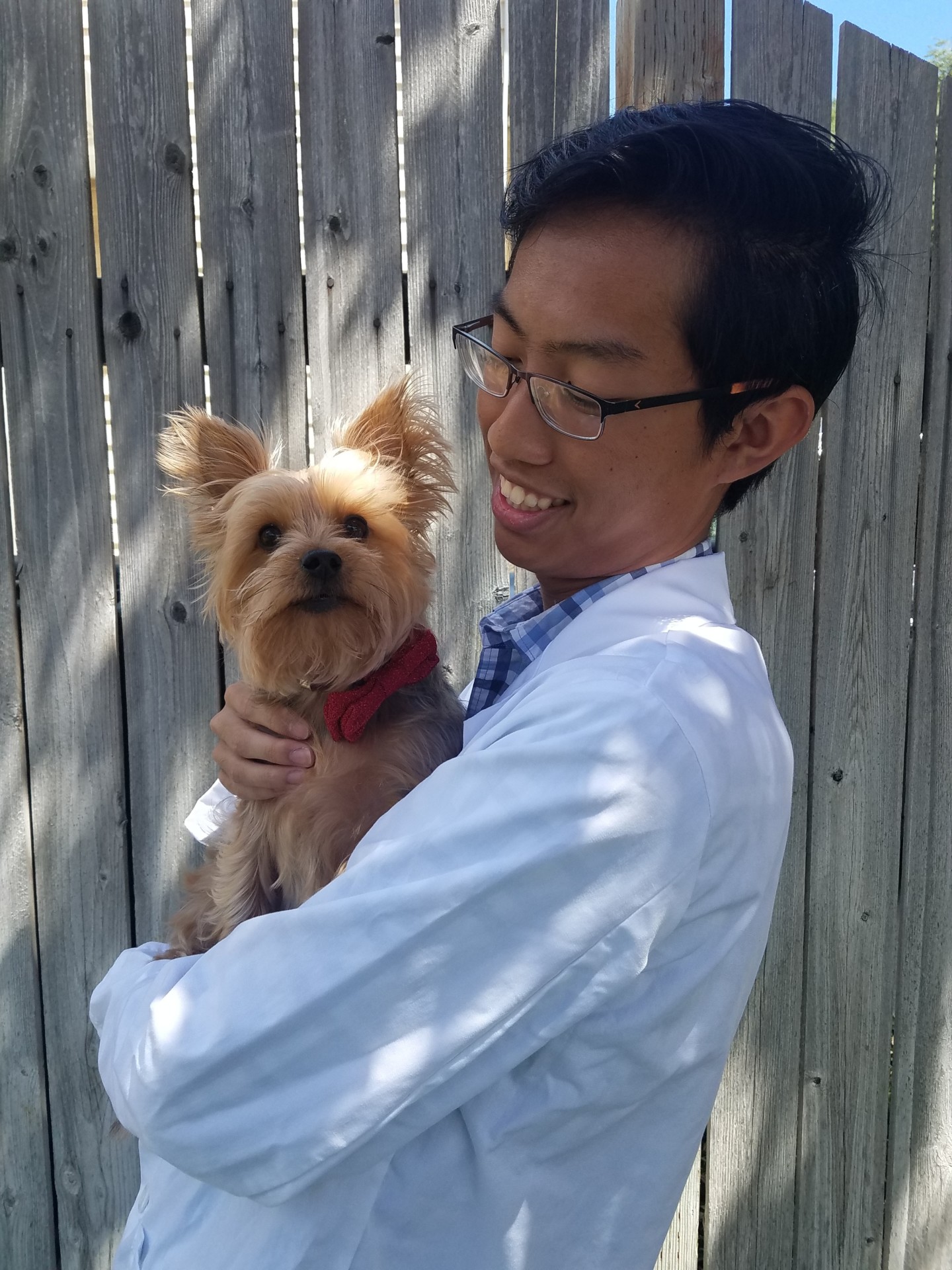Student Spotlight: Andy Nguy
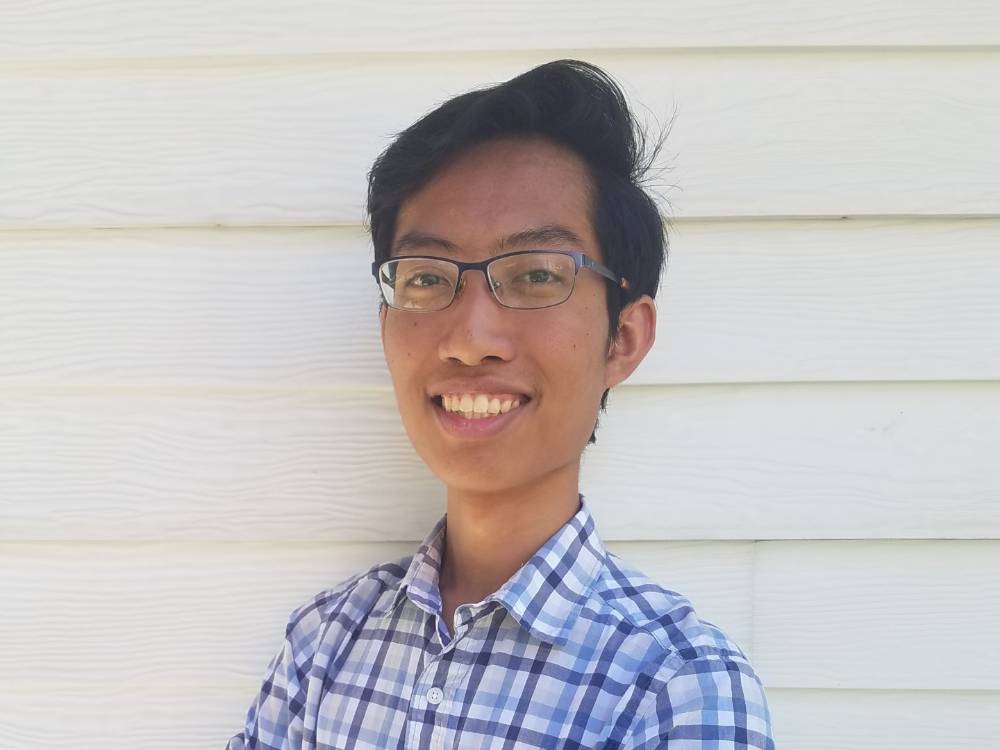
Each year the Office of Research chooses a few of our many exemplary Undergraduate Research Fellows to be Spotlight Students. We interview these students to learn more about their experiences as researchers and as undergraduate students at USU.
Andy Nguy is a student in Animal, Dairy & Veterinary Sciences in the School of Agriculture and Applied Sciences. Andy excels at research and has already worked in two labs while here at Utah State. He has won multiple scholarships and awards, and has hopes of becoming a vet in the near future.
About You
Q: What is your name and where are you from?
A: I am Andy Nguy from West Valley City, UT
Q: What are your interests outside of school and your research?
A: I like to play video games. I also like music and dance. I play the piano and the violin!
Q: What is one fun fact about you?
A: I am a first generation student.
Your Studies and Research
Q: What are you studying?
A: Animal, Dairy, and Veterinary Science
Q: When did you know what you wanted to study?
A: In the past I considered medical school. I decided that I really wanted to do medical procedures on animals. I started researching vet school and noticed that there were certain prerequisites. My major ties in really well for what is needed for vet school.
Q: What led you to Utah State?
A: It is not too far from home, but far enough. I mostly chose Utah State because I want to get into vet school. Utah State’s program is really cool because you get to work with Washington State University and Utah State University.
Q: What is the focus of your research?
A: The difference between the western diet and natural diets in the study of cancer.
Q: What is your favorite part of your research?
A: Mostly handling the mice. There are things that are challenging and scary, but over time you get used to it and start to feel better about things.
A Typical Day
Q: Describe a typical day in your research (in the lab, field, etc.)
A: I usually start by signing in and put on lab safety gear. Then I do normal procedures to clean cages and transfer mice to clean cages. We measure how much the mice are eating and collect fecal matter for testing.
Other days, I collect mice to put to sleep. I get help from the grad student, and we do dissections.
Q: What skills or expertise do you now have because of your involvement in research?
A: I learned the proper techniques to handle animals. I also learned different ways to dissect animals and how to properly store them for further analysis.
Q: How has this helped prepare you for your career?
A: It’s small stuff. Working with mice is more focused on small animals. I want to gain more knowledge about animals and see what else there is to learn.
Q: What has been a valuable USU resource for you and your research?
A: USU Connections. My Connections Professor taught me how to meet with a professor. Professors are easy to communicate with and they are pretty willing to help. I also learned how to find resources online to help me contact people.
Mentor
Q: Who is your mentor and what department are they in?
A: Dr. Abby Bennighoff in Animal, Dairy, and Veterinary Science.
Q: How did they become your mentor?
A: I asked my advisor about veterinary research. They sent me to the AG college to talk to someone else. That person gave me a few different research options, so I was able to pick the research that I wanted to work on and ended up working on this project with a grad student.
Q: What do you like about the collaboration process?
A: I think it’s the progress we make. When we do our little meeting, we see what is happening with our research and what next steps we need to take. The research will eventually change and we will do different processes. We get to see each person’s contribution, whether it is analysis, supplies, or publishing. I like seeing how each person contributes to one project.
Q: What is one valuable thing that research has taught you?
A: Mostly lab safety. There are a lot of different chemicals, safety gear, and processes to learn. Each time we collect data, we need to be cautious and careful. We also need to handle the animals with care.
Do you have any advice for new research students here at Utah State?
I’d say keep contacting people and you will eventually find a research project. You could find multiple projects! There are many out there. And you don’t need to stick to just one project. It is ok to change to a new one and learn new things.


